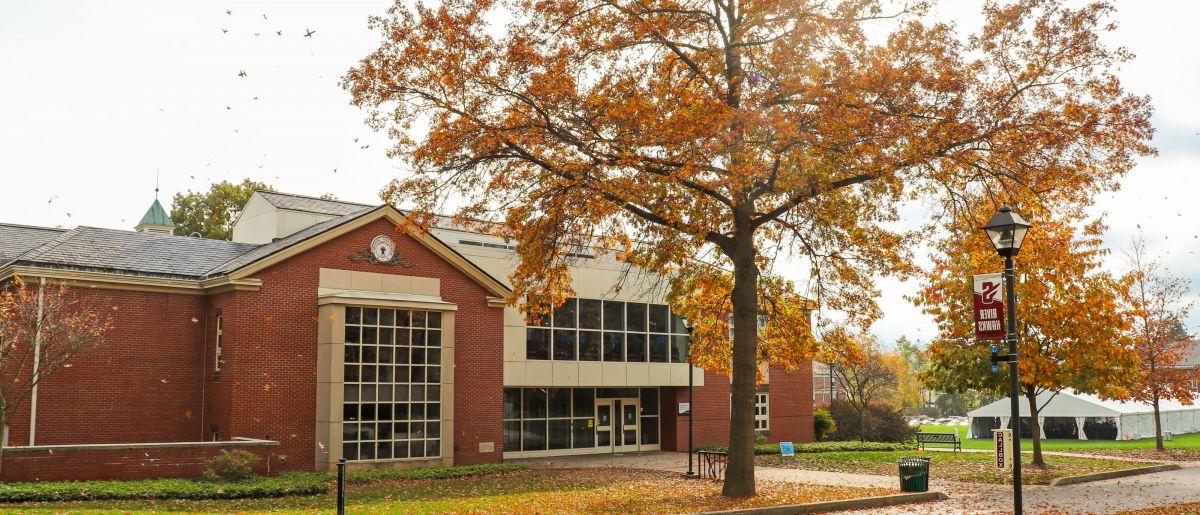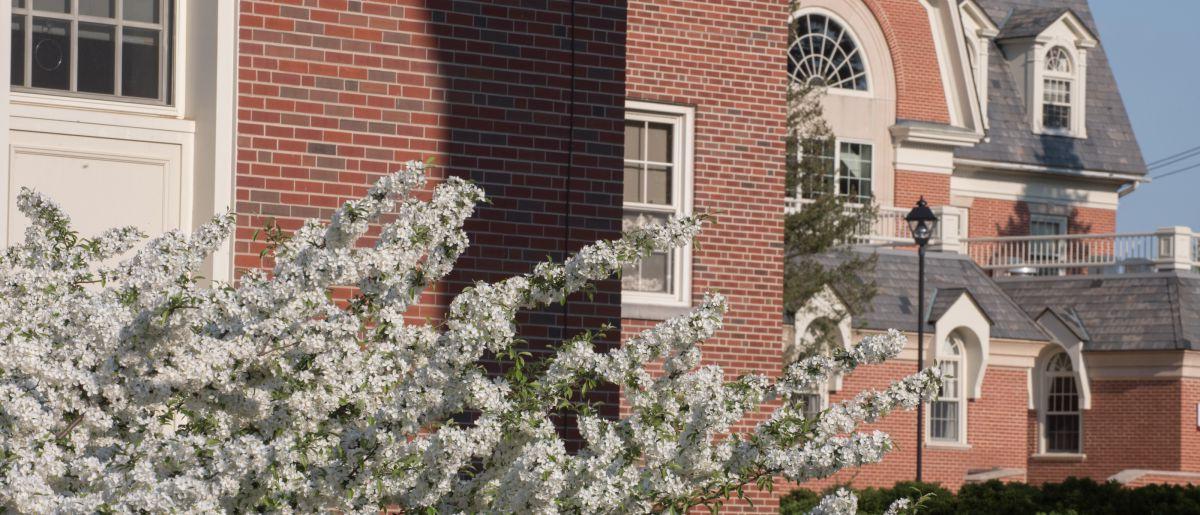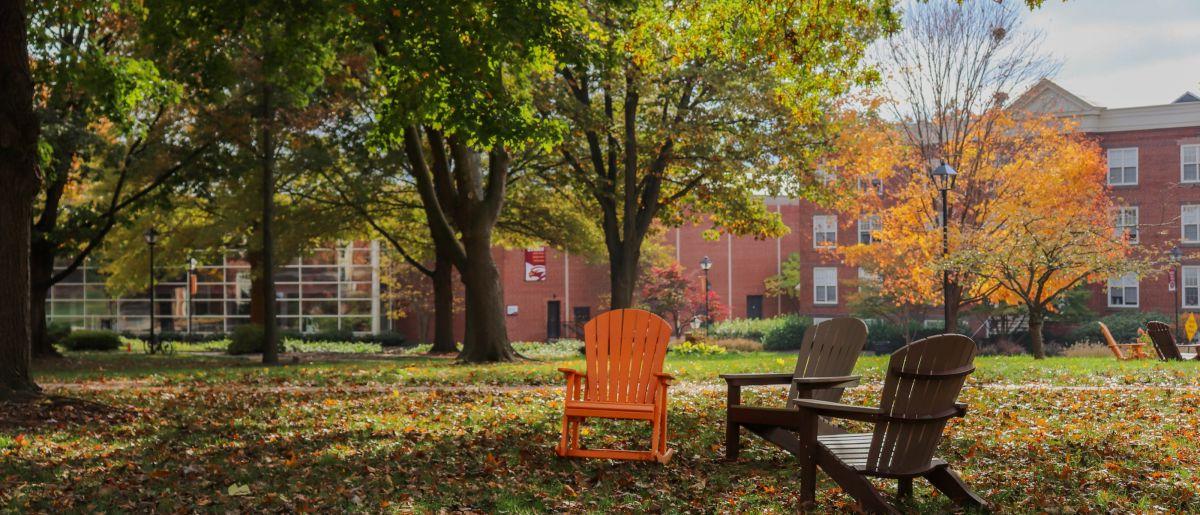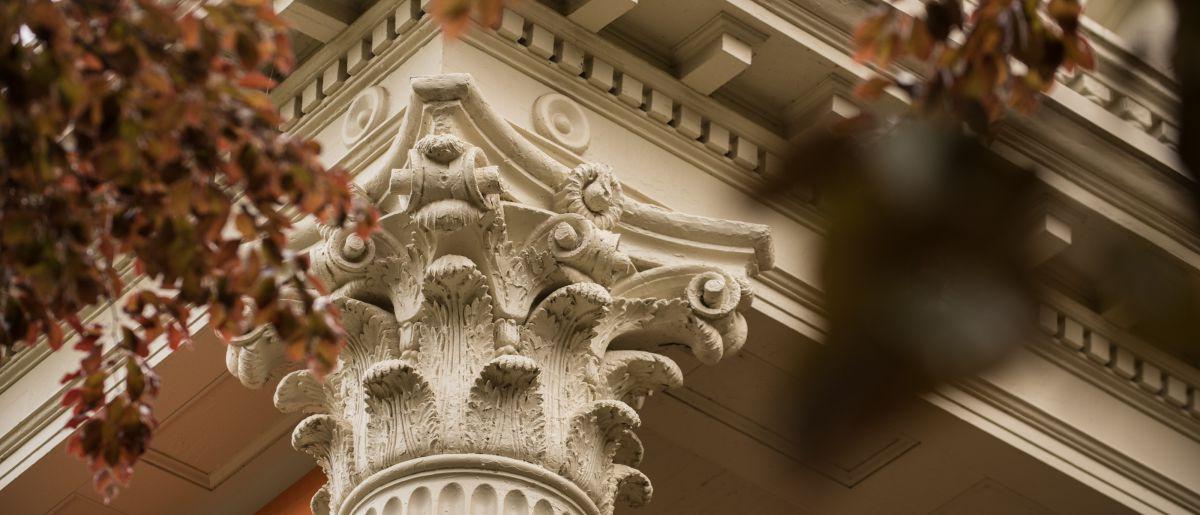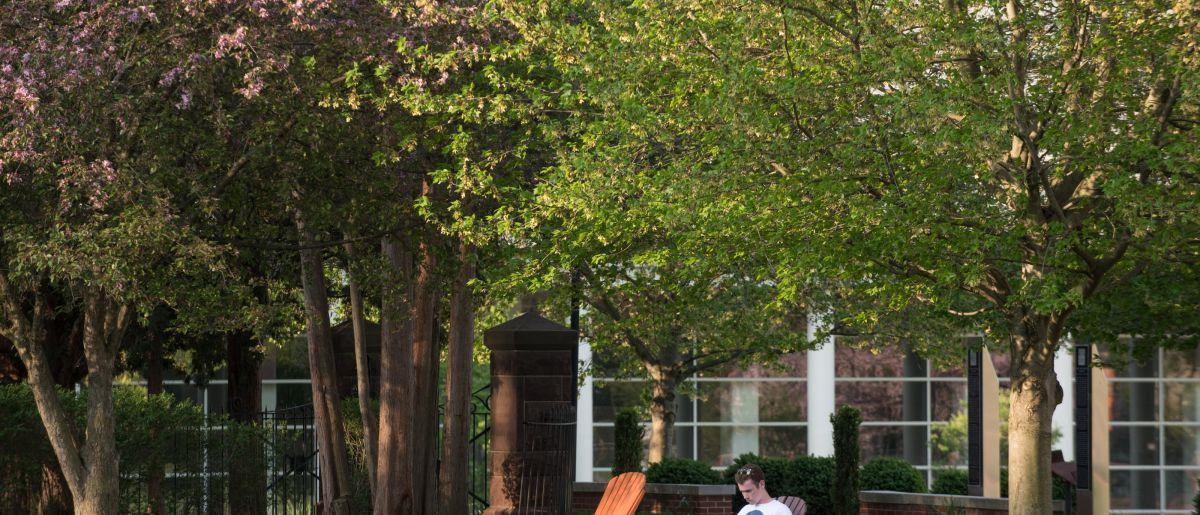Susquehanna University is committed to providing reasonable accommodations to individuals with disabilities. Individuals with disabilities who require the use of Service Animals as a reasonable accommodation may be permitted to bring such animals on campus as long as they comply with the applicable University policies below. Students who require the use of Assistance Animals may be permitted to bring such animals into University housing as long as they comply with the applicable University policies below. As outlined in the Residence Life On-Campus Housing Policies in the Student Handbook, “Animals (with the exception of small fish in a 20-gallon or less tank, service or assistance animals) are not permitted in the residence halls.”
This policy addresses service and assistance animals for students. Members of the Faculty and Staff should contact the Office of Human Resources for information and procedures regarding Service and Assistance Animals on campus.
Definitions
- Service Animals: In accordance with the Americans with Disabilities Act guidelines, a “Service Animal” is defined as a dog, or in some cases a miniature horse, that has been individually trained to do work or perform tasks for the benefit of an individual with a disability, including a physical, sensory, psychiatric, intellectual or other mental disability. Other animals, whether wild or domestic, do not qualify as Service Animals. A Service Animal assists a person with a disability with activities of daily living
- Assistance Animal: In accordance with the Fair Housing Act guidelines, an “Assistance Animal” works, provides assistance, or performs tasks for the benefit of a person with a disability. An Assistance Animal may also provide emotional support to alleviate one or more identified symptoms or effects of a person’s disability. No special training is required. An assistance animal is not a pet. The purpose of the Assistance Animal is to perform the assistance or provide the benefit needed as a reasonable accommodation to allow a person with a disability to enjoy his or her housing. Unlike a Service Animal, an Assistance Animal does not assist a person with a disability with activities of daily living. While an Assistance Animal may be considered for access to University housing, they are not permitted in other buildings of the University (e.g., library, academic buildings, classrooms, gym, dining facilities).
- Owner of a Service Animal: The “Owner of a Service Animal” is a student, faculty member, or staff member who has requested the accommodation and has received approval to bring the Service Animal on campus.
- Owner of an Assistance Animal: The “Owner of an Assistance Animal” is the student who has requested the accommodation and has received approval to bring the Assistance Animal into his or her residence within University housing.
Procedures to have Service Animals on Campus
- Students with disabilities who desire to use a Service Animal on campus must formally register with the Office of Disability Services and request the use of a Service Animal as an accommodation.
- Upon receiving a request for the use of a Service Animal, the Director of Disability Services will schedule an appointment with the student to discuss the accommodation request.
- If it is not readily apparent that the Service Animal is trained to do work or perform tasks for the individual, then the Director of Disability Services will ask:
- Whether the Service Animal is required because of a disability, and
- What work or tasks the Service Animal has been trained to perform
- If a student has been approved for a Service Animal and also intends to live on campus, all of the student’s roommate(s) or suitemate(s) will be notified to make them aware of the approval, and notify them that the approved animal will be sharing the residence with them. The notification will be limited to communication about the animal’s presence, and there will be no disclosure of the student’s specific disability. Disability Services and Residence Life staff will collaborate, as necessary, to resolve conflicts related to a Service Animal. Conflicts between Service Animals and others’ allergies, phobias, etc. will be addressed on a case-by-case basis (e.g., relocation to another University housing location).
- The requested Service Animal accommodation will be denied if:
- The animal is out of control and the Owner of the Service Animal does not take effective action to control it;
- The animal is not housebroken (i.e., trained so that the animal controls its waste elimination); or
- The animal poses a direct threat to the health or safety of others that cannot be eliminated or reduced to an acceptable level by a reasonable modification to other policies, practices, and procedures.
- Students whose request for a Service Animal through this process is not granted will have the opportunity to appeal such decisions by contacting the Vice President for Student Life & Dean of Students, verbally or in writing.
Procedures to have Assistance Animals in University Housing
- Students with disabilities desiring to use an Assistance Animal in University housing must formally register with the Office of Disability Services and request the use of an Assistance Animal as an accommodation. Students seeking to use an Assistance Animal in University housing are asked to make their requests according to the following deadline: March 1 for the upcoming academic year. Students are encouraged to meet with the Director of Disability Services prior to the Room Selection Process.
- Upon receipt of a request for the use of an Assistance Animal, the Director of Disability Services will schedule an appointment with the student to discuss the accommodation request, either in person, by telephone or via video meeting.
- The Director of Disability Services will ask at the appointment with the student requesting the accommodation:
- Whether the student seeking to use and live with the animal has a disability; and
- Whether the student making the request has a disability-related need for the Assistance Animal.
- If the answers to these two questions are “no,” then the accommodation request may be denied.
- If the answers to these two questions are “yes,” then the request may be granted for the student’s dormitory, unless doing so would impose an undue financial and administrative burden or would fundamentally alter the nature of the dormitory’s services.
- The requested Assistance Animal accommodation will be denied if:
- The specific Assistance Animal in question poses a direct threat to the health or safety of others that cannot be reduced or eliminated by another reasonable accommodation; or
- The specific Assistance Animal in question would cause substantial physical damage to the property of others that cannot be reduced or eliminated by another reasonable accommodation.
- If a student requesting an Assistance Animal accommodation has a disability that is not readily apparent or known to the University, the University may ask the student to submit reliable documentation of a disability and his or her disability-related need for an Assistance Animal. If the student’s disability is readily apparent or known to the University, but the disability-related need for the assistance is not, the University may ask the student to provide documentation of the disability related need for the Assistance Animal, but not documentation of his or her disability.
- Upon approval of an Assistance Animal, the student’s roommate(s) or suitemate(s) will be notified (if applicable) to make them aware of the approval and notify them that the approved animal will be sharing the residence with them. This notice will be limited to information about the animal’s presence: there will be no disclosure of the student’s disability. Disability Services and Residence Life staff will collaborate, as necessary, to resolve conflicts related to an Assistance Animal. Conflicts between Assistance Animals and others’ allergies, phobias, etc. will be addressed on a case-by-case basis (e.g., relocation to another University housing location). Students will be permitted to have no more than one Assistance Animal.
- Students whose request for an Assistance Animal through this process is not granted will have the opportunity to appeal such decisions by following the Appeals Process outlined on the SU Office of Disability Service’s webpage.
Assistance/Service Animal Owner Responsibilities
- All approved animals must be free from disease and have a valid health clearance from a veterinarian to ensure the animal is in good health and suitable for living on campus. Vaccination records must be provided and are subject to review on an annual basis.
- The Owner of the Service Animal or Assistance Animal is responsible for ensuring that the approved animal does not impede with the routine activities and daily operations of the University or cause complications for students or staff attending and working there. Sensitivity to individuals with allergies and to those who fear animals is vital to ensure the peace of the campus community.
- Approved animals must not be allowed to initiate contact/approach/sniff people, tables in eating areas, or personal properties of others.
- Regardless of whether or not the Owner was with the approved animal, the Owner is financially and legally responsible for the actions of an approved animal such as bodily injury or property damage, including, but not limited to, any replacement of furniture, carpet, or wall layering, etc. Susquehanna University shall have the right to bill the student for necessary repair and/or replacement costs.
- Approved animals must not cause undue financial burden to SU. All functions of using approved animals, including animal training or re-training, independent travel, animal food purchasing and maintenance, grooming, veterinarian care, and hygiene work is considered a personal aid or service and is the full responsibility of the individual with the disability.
- The owner must notify Director of Disability Services in writing if the approved animal is no longer necessary as an approved animal or is no longer in University housing. To replace an approved animal the owner must submit a new request for another animal, along with new health and vaccination records.
- The Owner of an Assistance Animal’s residence (which may extend beyond the Owner’s private residential area) may be inspected for fleas, ticks, or other pests once per semester or as needed. If fleas, ticks, or other pests are detected through inspection, the affected areas will be treated using a Susquehanna University approved pest control service. The student will be billed for the expense of any pest treatment above and beyond normal required pest management in University housing, if it is determined that the reason for the extra expense is the result of the Assistance Animal.
- Approved animals may not be bathed in the shower rooms, bathtubs, or sinks of the residence halls, and animal food must be kept in a covered storage container.
- Service Animals may travel freely with their owner throughout the University. Assistance Animals must be contained within the privately assigned residential area (room, suite, apartment) at all times, except when transported outside the private residential area in an animal carrier or controlled by leash or harness. Animals must not be tethered to a stationary fixture or left unattended outside of a residential room on campus.
- All animals left unattended in a room must be crated or caged. Except in the case of an extreme emergency, approved animals may not be left overnight in University Housing to be cared for by anyone other than the Owner of the Assistance Animal. Animals must be taken with the Owner if they leave campus for a prolonged time.
- In the event that the Owner must quarantine or become unable to care for the needs of the animal, the Owner’s emergency contact must come to retrieve the animal.
- Residence Life has the ability to relocate the Owner of an Assistance Animal and the Assistance Animal as necessary.
- The Owner of an Assistance Animal must abide by all other residential policies.
- The Owner of an Assistance Animal or Service Animal is responsible for ensuring the cleanup of the animal’s waste and must toilet the animal in areas designated by the college consistent with the reasonable capacity of the Owner. Animal feces must be disposed of as instructed by facilities management.
- Should the approved animal be removed from University housing for any reason, the owner is expected to satisfy their housing obligations.
- All approved animals must be treated humanely. Any reports of mistreatment may result in immediate removal of the animal from the university.
- Any violation of the above rules may result in re-evaluation of request to have the Service Animal on campus or to the Assistance Animal in University housing. If it is determined that the animal can no longer be permitted on campus, the removal of the animal will be the responsibility of the owner. Violations of the Owner Responsibilities may be reviewed through the University Student Conduct System. An Owner whose conduct is reviewed through one of these procedures will be given all of the rights of the University process and appeal rights as set forth in the Code of Student Conduct.
Guidelines for Faculty, Staff, Students, and Other Members of the University Community
Members of the Susquehanna University community are required to abide by the following practices:
- Allow approved Service Animals to accompany its owner at all times and in all areas of campus, except where animals may present a health or safety risk.
- Allow approved Assistance Animals to provide the necessary support to its Owner in the residence where the Owner abides.
- Do not touch an approved Service or Assistance Animal unless invited to do so by the Owner of the animal.
- Do not feed approved Service or Assistance Animals, unless you are the Owner.
- Do not purposefully startle an approved Service or Assistance Animal.
- Do not separate or try to separate an Owner from their approved Service or Assistance Animal.
- Do not request details about a person’s disabilities. The nature of a person’s disability is a private matter.



